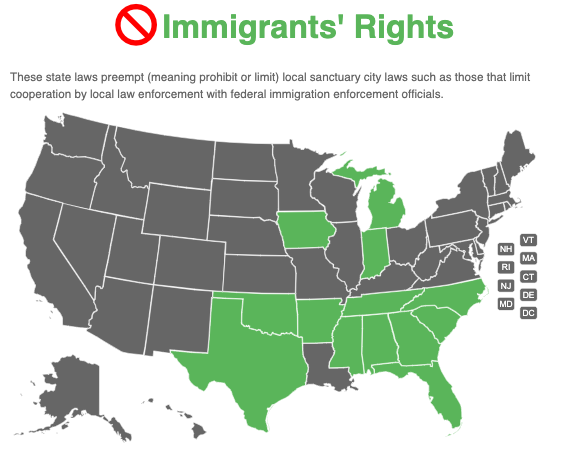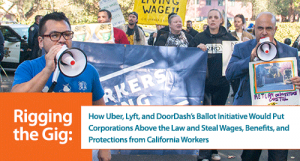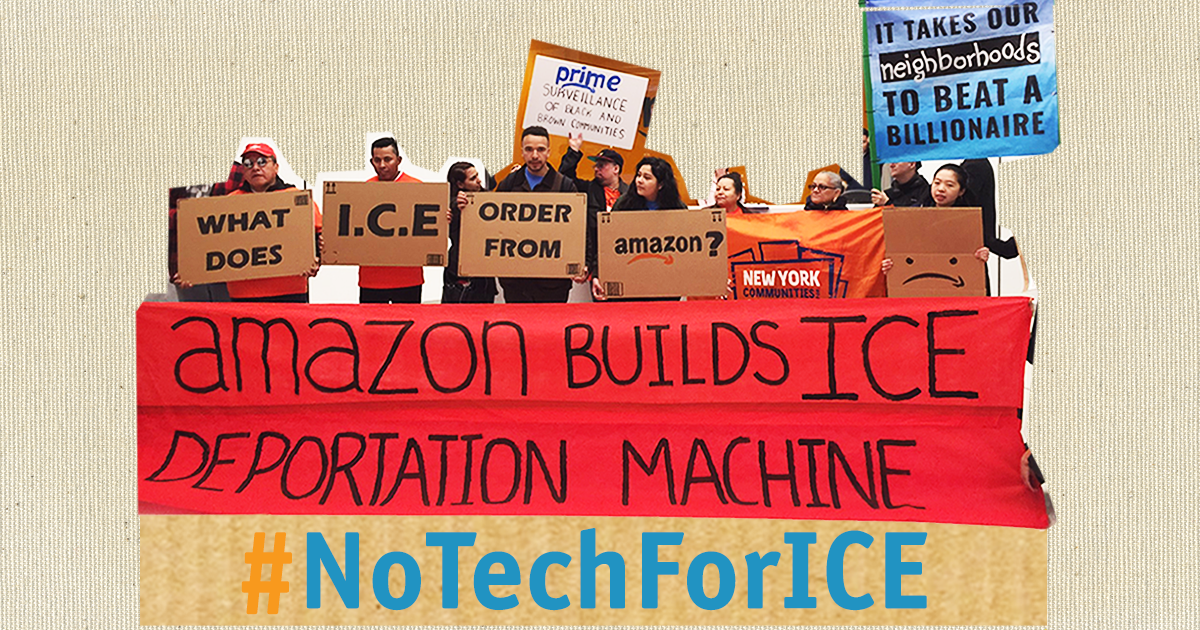With this year’s legislative session coming to a close, the Partnership has updated our State Interference Map, which tracks state laws and court decisions that block efforts to create local policies protecting the rights and well-being of poor people, people of color, women, LGBTQ individuals, and immigrants. When we launched the map in April 2018, our data highlighted the sweeping deregulation that corporations had achieved as well as the systems of oppression present in our politics, with overwhelmingly white, male state legislatures preempting progressive public policies that women, people of color and other marginalized communities have long fought to enact. The 2018/2019 session was an active one for state preemption bills, and we’ve noticed a few trends worth highlighting.
-
The Tide Is Starting to Turn Against State Interference. ALEC, Uber and other corporate juggernauts have had a devastating run in state legislatures in the last decade. Not only have they managed to enact laws that suppress local efforts to protect workers and vulnerable communities, they’ve also ensured that almost no protections exist at the state level. That’s starting to change -- this year, Colorado repealed its law preempting local minimum wages, and Pennsylvania’s highest court overturned a ruling that Pittsburgh’s paid sick days law was prohibited under state law. Oregon’s landmark enactment of statewide protections against rent gouging represents a shift - until now, none of the 27 states prohibiting local rent control had any form of state level rent control.
-
Big Tech Continues to Steamroll Worker and Consumer Protections. The Partnership and its allies have exposed the way that Uber has stopped or removed regulation of its industry in state legislatures across the country. And we have closely monitored the efforts of Handy -- a company that employs handymen and house cleaners -- to follow in Uber’s footsteps and stop any local regulation of tech platform businesses, particularly with regard to the employment status of workers. During the 2018/2019 legislative session, Big Tech continued its successful deregulatory campaign, with five states (FL, IA, IN, KY, TN) adopting laws that prevent localities from treating tech platform workers as employees and two states (ME and NE) joining the eight states that limit or prohibit local regulation of the short term rental industry.
-
State Interference Is a New Weapon on the War on Immigrants that Has intensified Under the Trump Administration. In the 2018/2019 session, three new states (IA, AR, FL) joined the ten states that limit or prohibit sanctuary city measures or the use of municipal identification. Nine of these states enacted these state interference laws in 2017 or later.




